Released: 14th August 2006
Writers: Anders Bagge / Alesha / Peer Astrom / Henrick Janson
Peak position: #14
Chart run: 14-29-44-71
More than two-and-a-half years after making her final chart appearance with Mis-Teeq, Alesha Dixon was fired up to release a new single. But would Lipstick deliver on her obvious potential as a solo artist?
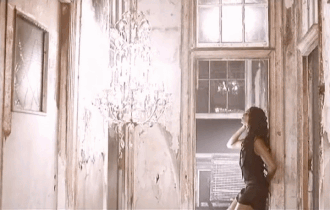
In the UK, Mis-Teeq’s second album campaign appeared to have stalled after Style reached #13 in 2003. However, after landing a chance opportunity, the group turned their attention to America when Scandalous was included on the soundtrack, which accompanied Catwoman (starring Halle Berry). The plan had been for Britney Spears to promote the movie by releasing Outrageous, but after sustaining a knee injury while filming the music video, Scandalous was chosen to take its place and subsequently peaked at #35 on the Billboard Hot 100. However, at precisely the same time as Mis-Teeq achieved a breakthrough in the US and started working on a third album, their label – Telstar Records – went bankrupt (the advance they paid to sign Victoria Beckham seems to have become widely accepted as what tipped them over the edge). The group were offered a new deal, but Alesha Dixon decided at that point to walk away, effectively bringing about the end of Mis-Teeq in 2005.

She later revealed that leaving wasn’t driven by a desire to go solo, but tensions within the group made recommitting undesirable. There was no dramatic fallout, though, and Mis-Teeq’s split was low-key (a greatest hits collection entered the chart at #28, but they didn’t actively promote it, and the artwork was reused from previous photo shoots). While a solo deal wasn’t necessarily part of Alesha Dixon’s plan, she signed a three-album deal with Polydor shortly after that and started working with a diverse range of writers and producers, including Richard “Biff” Stannard, Xenomania and Richard X. The material wasn’t rushed; indeed, over a year had passed before a debut single – Superficial – appeared on the release schedule. The decision was later made to go with Lipstick instead, although it came with relatively short notice, only around two months before the track was released.

It’s a bold choice, but that quality characterised how Polydor launched Alesha Dixon, right down to dropping her surname. Those who only became acquainted with her material on The Alesha Show – released after winning Strictly Come Dancing – may be surprised at how comparatively left-field this first solo foray was. If there were any lingering assumptions she’d be marketed as a one-woman Mis-Teeq, then Lipstick immediately makes it clear that that wouldn’t be the case. The track opens with Alesha Dixon teasing: “I said are you ready?” as the drum beat erupts into a spiky guitar melody and riffed intro: “Yeah, hey! Come on…UH! Hey, hey, hey, he-he, he-he, hey (let’s do it) wow, whoa, YEAH (are you ready) wow, whoa, YEAH. All my ladies, let’s do it, come on, HEY!”. There’s an energy about the entire production that feels pointedly raw and unbridled compared to the slickly remixed garage/R&B most would associate with her.
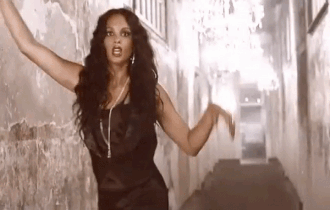
Lipstick is a fusion of mid-’00s chart trends; there’s an indie-sensibility about the instrumentation, while the verses (“I know the girls inside, they wanna get on with the ladies, but there are always fellas there to stir and make you crazy…”) are driven by a fuzzy electro-pop bassline. The song simultaneously sounds like a product of its time while also being so quirky and offbeat that it’s not entirely clear where Lipstick would sit in terms of appeal. That was a risk when re-establishing Alesha Dixon, even if, at its core, the track is unambiguously built around a familiar, strong message of female solidarity: “You think that girl’s a traitor, but that man’s the instigator”. It’s assertively delivered with rallying cries: “It’s not the way it’s supposed to be, so come on ladies, dance with me…” and even includes a hint of her distinctive MC skills: “And I’ll tell ya no, n-n-n-n-n-no, no, no, no, no, no, no, NO!”, though stops short of a full rap. These aspects ensure that even where Lipstick presents Alesha Dixon in unfamiliar musical territory, it still feels like an on-brand, authentic evolution in her identity as an artist.

Indeed, if there’s an iota of confusion here, it’s in the song’s arrangement and what it intends to be. For the most part, Lipstick is a rousing call to the dancefloor, yet the middle eight changes the pace entirely. Alesha Dixon’s voice becomes distorted as the intensity dials back: “Feel the rhythm in your body, gotta lose control, all my ladies stick together, we’ll get on a roll, feel it in your soul, if you wanna get on down I think it’s time to look around…” until the track ascends to a dreamy, ethereal breakdown: “…We’re all the same, yeah, oh you gotta think about it, you’re beating up yourself” before crashing back into the beat. It’s a creative switch that affirms Lipstick isn’t compelled to play by the rules. However, in doing so, it does feel slightly out of place and prevents the song from realising its full potential as a relentless dancefloor banger (though several remixes were commissioned to help with that).
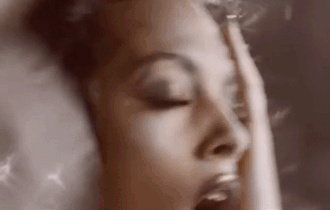
Lipstick is undoubtedly best when it’s raucously upbeat and nowhere is that done better than the chorus: “Turning up with your jewellery on, making moves with your lipstick on, want some of that cushy stuff, oh-oh-oh-oh-oh-oh, oh; let’s jump when the music’s on, all my girls living up ‘til dawn, want a little bit sing this song, oh-oh-oh-oh-oh-oh, oh”. It’s brash, forthright and packs a killer hook with the naggingly catchy “Oh-oh-oh-oh-oh-oh, oh” refrain. Considering Lipstick runs little more than two minutes and 45 seconds, it packs a lot in. Some might argue there’s a little too much, but either way, the track makes a convincing statement that Alesha Dixon has far more to her repertoire than ‘just’ razor-sharp rap skills.
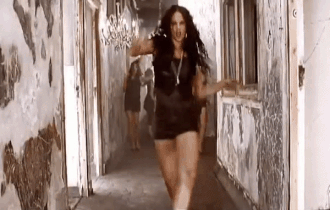
Visually, Lipstick feels equally influenced and constrained by where UK pop music existed during the mid-’00s. It’s set in a large dilapidated house – lit with chandeliers – where Alesha Dixon and her backing dancers perform various energetically choreographed routines. The video oozes sass and star quality (particularly the corridor-strutting sequences), while the aesthetic adds a grungy, indie realness that complements Lipstick’s production. Yet, the overall appearance also feels like the consequence of a cautious exercise in Polydor knowing how much budget they could (or should) spend on Alesha Dixon. That’s fair because single sales were still low; the inclusion of downloads hadn’t yet re-energised the charts so that labels could confidently throw money at music videos as they might once have. It’s not necessarily to suggest Lipstick warranted a bigger, better concept; what’s there works well. But more broadly, comparing Alesha Dixon’s (re)launch to where Mis-Teeq left off with Style in 2003 shows just how much the music industry had changed in a relatively short time.
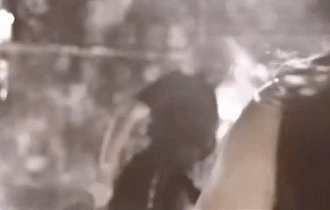
Thus, it isn’t easy to gauge what parameters Polydor used to measure Lipstick‘s success. Almost three years had passed since Mis-Teeq’s last hit, and the track is so different from their material that there wasn’t any reason to assume it would appeal to the same audience. Lipstick subsequently debuted at #14, which isn’t disastrous. Frustratingly, despite not being a busy week – Alesha Dixon scored the second-highest of three new entries to the top 20 – overall sales were (comparatively) strong compared to the previous week. Thus, had it been released earlier, the 8,611 copies sold would’ve been enough to enter the top 10, which might’ve given Lipstick a little more visibility. Nonetheless, it performed sufficiently for a second single – Knockdown – to follow several months later.
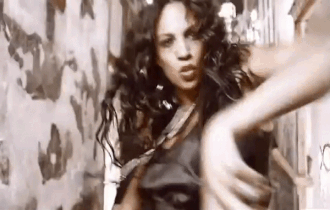
There’s much to like about Lipstick; it shows Alesha Dixon had no intention of playing it safe. However, while the song has its fans, there is also a degree to which it didn’t connect on the level intended (despite being B-listed at Radio 1, the track climbed no higher than #50 on the airplay chart). The reaction wasn’t negative, but more one that recognised and respected Alesha Dixon’s talent while – rightly or wrongly – being somewhat ambivalent towards the way it had been packaged here.



